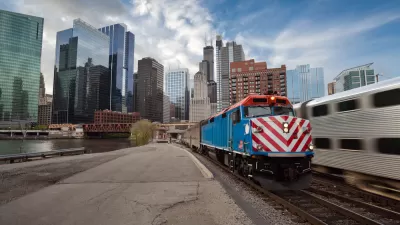With more people gravitating toward cities than ever before, new urban morphologies are proliferating throughout the world. Arup Connect's Sarah Wesseler talks with Roger Keil of York University about challenges facing global suburban development.

Q: How do you see design fitting into discussions of suburbanization and governance?
Well, take the North American suburb. It’s important to realize that this world is created at the planning scale. The design basically follows. Space is produced in a particular form by particular governance processes, by metropolitan governments that lay out the space, build the highways, create the subdivisions. The land is subdivided, the lot size is determined, the lot size determines a certain design: will it be a ranch-style home or a bungalow? You can pretty much lay that out the entire way. The important thing has in the past been that scale.
What we now have are interesting conversations about retrofitting suburbia. The single-family home is often considered unreformable; once there’s a single-family home on a single lot, it’s basically untouchable for all kinds of reasons. But then there could be design ideas about how to start from the individual lot outward, to think differently about that space.
FULL STORY: Beyond the White Picket Fence

Maui's Vacation Rental Debate Turns Ugly
Verbal attacks, misinformation campaigns and fistfights plague a high-stakes debate to convert thousands of vacation rentals into long-term housing.

Planetizen Federal Action Tracker
A weekly monitor of how Trump’s orders and actions are impacting planners and planning in America.

In Urban Planning, AI Prompting Could be the New Design Thinking
Creativity has long been key to great urban design. What if we see AI as our new creative partner?

King County Supportive Housing Program Offers Hope for Unhoused Residents
The county is taking a ‘Housing First’ approach that prioritizes getting people into housing, then offering wraparound supportive services.

Researchers Use AI to Get Clearer Picture of US Housing
Analysts are using artificial intelligence to supercharge their research by allowing them to comb through data faster. Though these AI tools can be error prone, they save time and housing researchers are optimistic about the future.

Making Shared Micromobility More Inclusive
Cities and shared mobility system operators can do more to include people with disabilities in planning and operations, per a new report.
Urban Design for Planners 1: Software Tools
This six-course series explores essential urban design concepts using open source software and equips planners with the tools they need to participate fully in the urban design process.
Planning for Universal Design
Learn the tools for implementing Universal Design in planning regulations.
planning NEXT
Appalachian Highlands Housing Partners
Mpact (founded as Rail~Volution)
City of Camden Redevelopment Agency
City of Astoria
City of Portland
City of Laramie



























